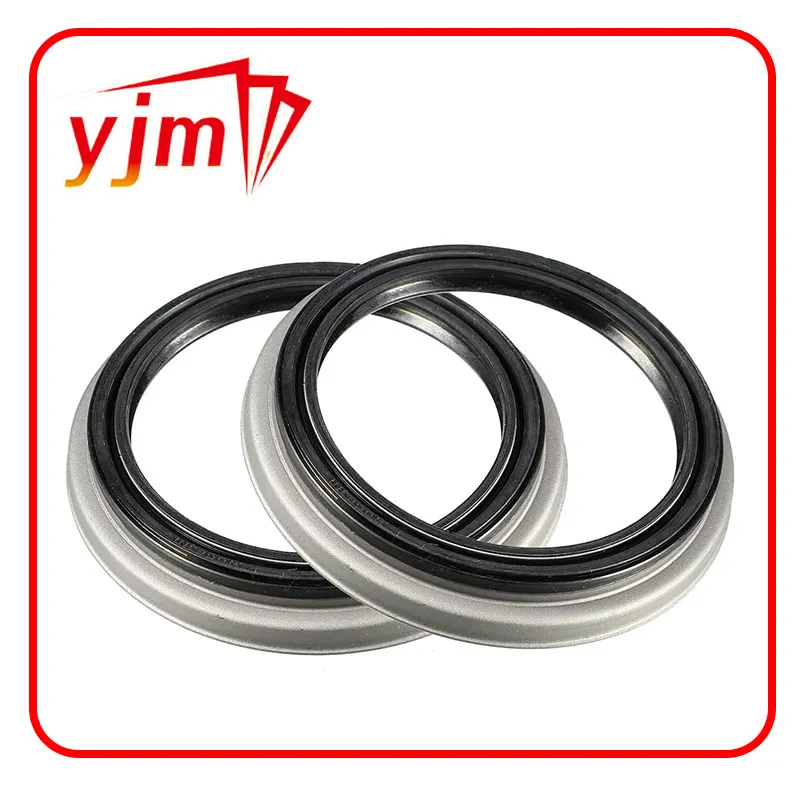silicone oil seal
Silicone Oil Seals An Overview
Silicone oil seals are essential components in various industries, providing effective sealing solutions that cater to different applications. These seals are made from silicone, a versatile material known for its excellent temperature resistance, chemical stability, and flexibility. As a result, silicone oil seals are widely utilized in automotive, aerospace, manufacturing, and even medical sectors. This article delves into the properties, applications, advantages, and considerations surrounding silicone oil seals.
Properties of Silicone Oil Seals
One of the standout features of silicone oil seals is their remarkable temperature resilience. They can withstand a broad temperature range, typically from -50°C to +200°C, although some specialized grades can endure even higher temperatures. This property makes them suitable for environments where extreme heat or cold is a factor.
Silicone oil seals also exhibit excellent chemical resistance. They can resist many oils, solvents, water, and other chemicals without degrading, making them ideal for use in systems where exposure to various substances is expected.
Flexibility is another key attribute. Silicone rubber has inherent elasticity, allowing it to maintain a proper seal even under varying pressures and mechanical stresses. Silicone oil seals can compress and expand without losing their sealing properties, ensuring a reliable seal in dynamic applications.
Applications of Silicone Oil Seals
Silicone oil seals find application in a myriad of industries. In the automotive sector, they are used in engine components, transmission systems, and various fluid transfer systems. The ability to endure high temperatures and resist oils makes them indispensable for maintaining vehicle performance and longevity.
In the aerospace industry, silicone oil seals are utilized in fuel systems, hydraulic systems, and other critical components
. Their ability to operate under extreme conditions, combined with lightweight characteristics, ensures the reliability and efficiency of aerospace systems.silicone oil seal

Manufacturing processes also leverage silicone oil seals, particularly in machinery that requires precise sealing to prevent leaks and contamination. These seals are crucial in hydraulic systems, conveyor belts, and other equipment that demands high-performance sealing solutions.
In the medical field, silicone oil seals are used in devices that require sanitary conditions, such as pumps and dispensers. Their non-toxic nature and resistance to sterilization processes make them suitable for healthcare applications.
Advantages of Silicone Oil Seals
The advantages of silicone oil seals are multifaceted. Their durability and longevity reduce the need for frequent replacements, thus minimizing maintenance costs. Additionally, their excellent sealing properties contribute to enhanced safety and performance in various systems.
Moreover, silicone oil seals are environmentally friendly. Silicone is a sustainable material that does not release harmful substances, making it a safer alternative compared to some synthetic materials.
Considerations
Despite their many advantages, it is essential to consider specific factors when selecting silicone oil seals. Temperature ratings, chemical compatibility, and environmental conditions should be evaluated to ensure that the chosen seal meets the requirements of the application.
In conclusion, silicone oil seals offer reliable and versatile sealing solutions across multiple industries. Their superior properties, coupled with a wide range of applications, underline their significance in modern engineering and manufacturing processes. As technology continues to advance, the demand for high-performance materials like silicone will likely grow, further solidifying the role of silicone oil seals in critical applications.
-
Simplifying Oil Changes: A Comprehensive Guide to Oil Drain Plugs and Their Variants
News Aug.04,2025
-
Mastering Oil Drain Maintenance: Solutions for Stripped, Worn, and Upgraded Oil Plugs
News Aug.04,2025
-
Fixing Oil Pan Plug Issues: Leaks, Stripped Nuts, and the Right Replacement Solutions
News Aug.04,2025
-
Everything You Need to Know About Oil Drain Plugs: Sizes, Fixes, and Upgrades
News Aug.04,2025
-
Choosing the Right Oil Drain Plug: A Guide to Sizes, Materials, and Drain Innovations
News Aug.04,2025
-
A Complete Guide to Automotive Drain Plugs: Types, Problems, and Innovative Solutions
News Aug.04,2025
-
The Ultimate Guide to Car Repair Kits: Tools and Essentials Every Driver Should Own
News Aug.01,2025
Products categories















